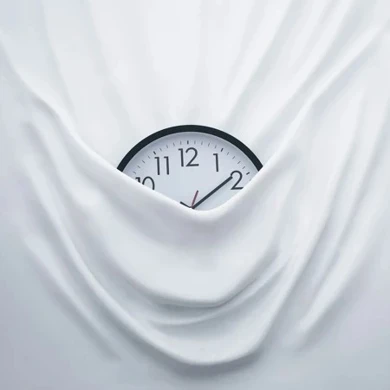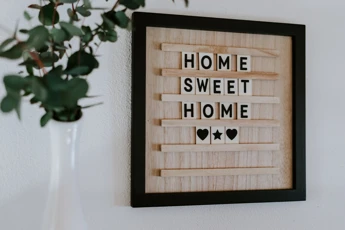There are a number of key elements involved in buying your first home that you'll need to give some consideration. Whether it’s understanding your LTV (what on earth is that?), trying to save for a deposit, or what happens if the sale falls through, we’re going to address each one and hopefully put your mind at ease.
These are all reasonable things to be worried about, but the good news is, you don’t have to.
Can I really afford a deposit for my first home?
Yes, you can. Despite what you may have heard, it’s still more than possible to get on the property ladder, and there are several ways you can get there.
Check out the articles on the right to help you navigate the homebuying process.
With some research and a few solid plans in place, you’ll be well on your way to saving for the deposit you need. Before you know it, you’ll be signing the paperwork and collecting your keys!
Helpful links
What does LTV mean?
LTV stands for ‘Loan to Value’. This is the amount of mortgage you have, versus the value of your house. When it comes to finding the right mortgage for you, the lower your LTV, the more options available on the market, as you’ll be considered a low risk borrower.
Check out our calculator below to find out more about what kind of mortgages you could get.
Find your mortgage
Our mortgage finder searches thousands of deals, so you can rest assured we'll always find the right one for you.
Representative example: A mortgage of £ payable over years, total cost for comparison APRC %. Total amount payable £ includes interest and product fees (Fee total £).
Repayments: months of £ at % (variable), then months of £ at % Standard Variable Rate (SVR).
Early repayment charges may apply.
Representative example: A mortgage of £ payable over years, total cost for comparison APRC %. Total amount payable £ includes interest and product fees (Fee total £).
Repayments: months of £ at % (variable), then months of £ at % Standard Variable Rate (SVR).
Early repayment charges may apply.
Representative example: A mortgage of £ payable over years, total cost for comparison APRC %. Total amount payable £ includes interest and product fees (Fee total £).
Repayments: months of £ at % (variable), then months of £ at % Standard Variable Rate (SVR).
Early repayment charges may apply.
How do you calculate your LTV?
First, you need to work out how much mortgage you need to borrow. Do this by taking the value of the house, then subtracting your deposit from the total.
Let's say your mortgage would be £250,000, but you have a £50,000 deposit.
£250,000 - £50,000 = £200,000 (this is the actual amount you would need to borrow)
To calculate the LTV, divide the amount you need to borrow by the value of the house.
£200,000 ÷ £250,000
= 0.8
If you then multiply this by 100, you get a total value of:
0.8 x 100
= 80
This translates to 80%, so your LTV is 80%.

What’s the risk of losing my deposit?
When you make an offer on a house, it can take anywhere from a few weeks to several months to get all the legal and financial paperwork sorted out. To keep your deposit safe during this window, you will send it to your legal company so they can start the process of exchanging contracts. This guarantees your purchase and protects your deposit, should the sale fall through after exchange.
If the sale falls through prior to exchange, you might still be charged for any finance and legal work carried out, but you won’t risk losing any of your deposit money. Property purchases can fall through prior to exchange, but it’s rare for there to be a problem after contracts have been exchanged.
However, if you change your mind and pull out of the exchange, then the seller will keep your deposit, as per the contract.
Can I get a loan for my deposit?
Unfortunately not, as this is frowned upon by lenders. A mortgage is lent to you based on what payments you can afford on a monthly basis, plus the deposit you put down.
If you have to take out a loan for the deposit, it suggests you can’t really afford the property in the first place.
If you can’t afford the deposit, you might want to consider finding someone who can act as a mortgage guarantor. We also recommend you speak to a mortgage adviser so you have a clear idea what your options are.
How do I get a deposit back if my purchase falls through?
When you exchange contracts, this means the buyer and seller are legally committed to the purchase and sale of the property.
If you’ve already exchanged contracts and then the purchase falls through because the seller has dropped out, you’ll get your full deposit back from your legal company.
How can I make buying a house less stressful?
It’s totally normal to experience anxiety when buying a house. Fortunately, that’s why there are mortgage advisers, like us, on hand to help out.
Part of our job, alongside providing advice, is to ease the burden of the house buying process and help lift that stress and worry off your shoulders.
If you’d like to speak to us about buying your first home - even if it’s to discuss any worries or concerns you have - get in touch with us today.
In the meantime, check out the articles featured below for some extra tips and tricks.
Important information
Your home may be repossessed if you do not keep up repayments on your mortgage.
There may be a fee for mortgage advice. The actual amount you pay will depend on your circumstances. The fee is up to 1% but a typical fee is 0.3% of the amount borrowed.
Is now a good time to buy your first home?
If you’re looking to buy your first home, then you’re probably wondering if now is a good time to make the move…
< 50 views | 1 year ago
Glossary of mortgage terms
Learn the lingo of mortgages right here so that when you apply for your mortgage, you can follow the whole conversation.
< 50 views | 3 months ago
Different types of mortgages explained
Is choosing the right mortgage making your head hurt?
< 80 views | 2 years ago
No posts currently available




